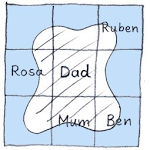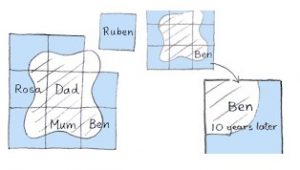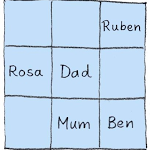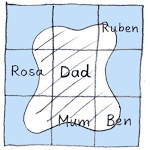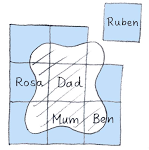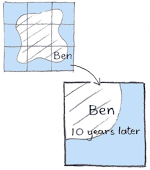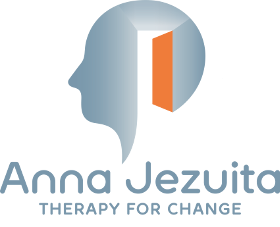Therapy for Family Issues & Family Relationships
Family is a concept we cannot escape. We all have one, or at least came from one, and each of us has a story about it, even if that story goes: “I don’t want to have anything to do with my family”. This statement suggests that there is a powerful story which encapsulates years of events that have led up to this point.
No matter what has happened, within them, families affect who we are. Being part of the organism which we define as ‘my family’, we must adjust and find a way to exist within its boundaries, or at least until we are able to break away and meet our own needs independently. Often being in this ‘state of existence’ happens at a cost of ‘not being able to be myself’. This is the price of keeping the family system functioning.
The need to belong to a family (or community, or culture) is strong, so it is not easy to make a choice between belonging or being myself. How to choose between
‘I want to belong and be loved’ and ‘I want to be free and breathe’?
This dilemma is often present in families where some dramatic event upsets the stability and all the family members have to adjust to the change. It may be caused by any of the events below:
- grave illness of a child or parent
- death of a family member (see more on bereavement counselling)
- coming out as gay or trans by a parent or child (more about LGBTQ therapy)
- family breakup and formation of new family constellation which needs to include step-family members
- addiction of one of the family members (more about addictions and OCD counselling)
Therapy for the Family relationships in crisis
In my work with a family crisis I suggest to my clients, looking at their families and themselves as ‘systems’, where all members of the family system are interdependent elements.
We depend on each other to maintain it, and expect of the others to fulfil their roles, i.e. behave in a certain way. However, because of the interdependence, it takes the change of only one element to affect the whole system. When one family member changes, the others have to adjust their behaviour accordingly, otherwise the system may collapse.
For example:
A teenage girl with anorexia is struggling with her own illness, and not able to see the impact on the others.
The worried mother will focus attention on her excessively – on one hand abandoning other siblings by not having time to tend to their needs, but on the other hand obsessing about food for the whole family and “feeding them” with her anxiety that they may not be eating enough.
Relationships among siblings may be fractured by each having a different idea on how to approach their ill sister:
“you are too soft, she is just seeking attention!”
“you are too cruel and self-obsessed – she needs our care!”
in fact replaying the parents’ behaviour.
Although each of the individuals have good intentions and tries to ‘fix the problem’, their lack of overview and skills to communicate with each other causes the divide and crisis to deepen, threatening the integrity of the system for example, dad may decide to leave the family system or perhaps one of the children may develop their own behavioural problems, etc.
Family relationship therapy – how does it work?
The goal of Family relationship therapy is bringing the awareness and skills of systemic thinking into the family environment.
Each of the family members need to understand their role and impact not only in their own right – ‘who I am?’, but in context of others ‘what is my impact on others, and how do they impact on me’. With such a foundation we can then look at learning to communicate and behave in such a way that the needs of both, an individual family member and of the ‘family system’ are being looked after.
In a way we see the family as complicated machinery which may be in-need of ‘retuning’ or ‘recalibrating’. Therapy works even if only some of the family members engage in therapy, because the change in one of the elements will eventually put in motion changes in other elements (family members).
If you think your family is in need of recalibrating, Call Anna to discuss Family Relationships Therapy
The Model – “Squares and Blob”
Everyone is affected, everyone needs support.
The mechanics and impact of traumatic events on the family and their members can be seen on the example of the addiction of one of the family members.
The Squares and Blob model below suggests a way of looking at families as “systems”, where all members of the family system are interdependent elements. We depend on each other in maintaining it, and expect for the others to fulfill their roles, i.e behave in a certain way. However, because of the interdependence, it takes the change of only one element to affect the whole system. When one family member changes, the others have to adjust their behaviour accordingly, otherwise the system may collapse.

